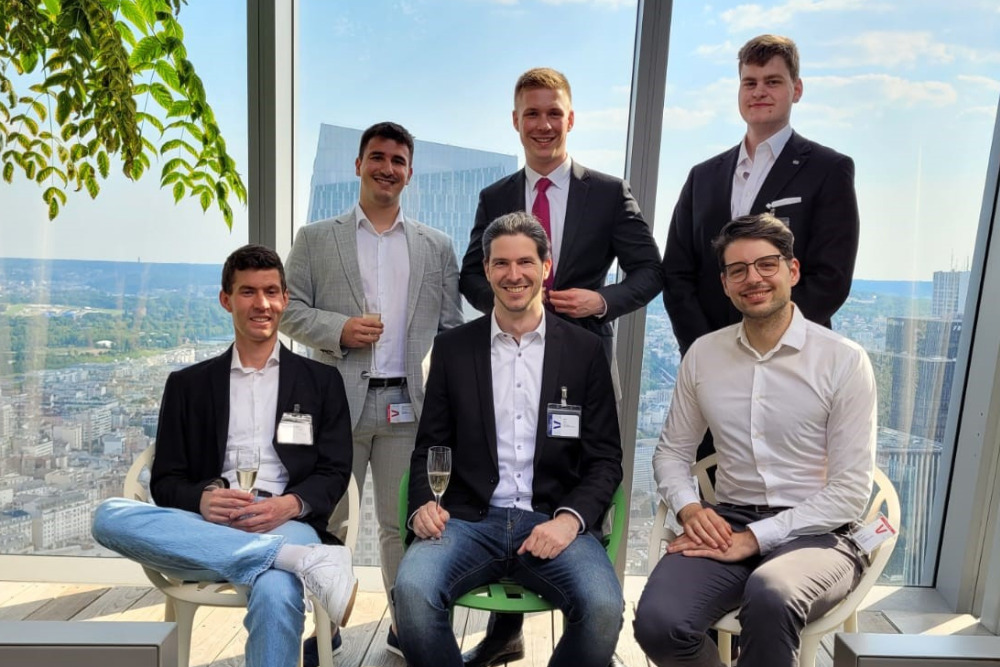
It was a neck-and-neck race. In the end, the jury decided that teams from Germany and Singapore shared first place in the international Quantum Hackathon. Ten teams competed, each of which had to solve a real-world problem from a scenario of social or economic relevance using quantum computing methods. The winners were Lamarr scientists Thore Gerlach and David Biesner, researchers Stelios Emmanouilidis and Lars Döpper from Fraunhofer IAIS, and Markus Kastner and Stefan Knipp from Thales SIX. The Germans prevailed in the final against teams from France, Great Britain and Canada.
The international Quantum Hackathon was organized by the French technology group Thales and QuantX, an alumni organization of the École Polytechnique in Paris. The competition aimed to use selected application scenarios to answer the question of how real problems from society and industry can already be solved with quantum computing today. To this end, the hackathon brought together scientists from universities and research institutes with experts in quantum technologies from companies. The competition was also supported by manufacturers of quantum hardware.
The German team won with its solution to a practical chip design problem. Specifically, the challenge was to optimize FPGA, short for Field Programmable Gate Array. FPGA are electronic components that are now used in many areas such as the automotive industry, mechanical engineering and consumer electronics. The advantages of FPGA compared to conventional integrated circuits are flexible use and lower development costs.
This flexibility results from the ability to arrange and interconnect the physical elements of an FPGA, called logic blocks, using hardware-specific programming languages. To produce the most powerful FPGA possible, the logic blocks must be optimally placed on the chip during development.
The German hackathon team solved this complex optimization task for chip design with the help of quantum algorithms. Quantum algorithms are suitable for use on quantum computers or their simulation and exploit effects of quantum physics. These effects, such as the superposition or entanglement of quantum states, allow certain problems to be solved faster with quantum computers than with classical computers. The combination of quantum methods and Machine Learning is particularly suitable for the efficient solution of optimization tasks.
In the competition, the winning team also successfully used quantum algorithms to optimally place individual elements of FPGA and minimize the length of the interconnecting paths between them. Bolstered by this success, the quantum experts from the Lamarr Institute and Fraunhofer IAIS will now continue to research their topics, with a particular focus on practical applications and collaboration with companies. After all, the developments of recent years and especially the results of the hackathon have shown that quantum computing is increasingly evolving from a theoretical research concept to a tool for solving current real-world challenges.